Narrative Cultural Studies K-4 Series Discusses Cultural Changes in Balinese Architecture and Dowry in East Nusa Tenggara
For the 4th time, the Doctoral Study Program in Cultural Studies, Faculty of Humanities (FOH) Unud and UNS Solo held a National Student Seminar (Narrative) in Cultural Studies, Friday, June 21 2024, held online.
The seminar was attended by students, lecturers and general enthusiasts with a total of 45 people. In the 4th narrative moderated by Mahfud (Doctoral Cultural Studies UNS), two speakers appeared.
First, Made Suastika (Doctoral Student in Cultural Studies at UNS) with the topic "Transformation of Bale Agung through Balinese Architectural Civilization".
Second, Renhat Marlianus Siki (Doctoral Cultural Studies Unud) presented the topic "Shifting Practices of Giving Dowries in NTT".
AKBI support
In the foreword to the 4th Narrative, Chair of the Indonesian Cultural Studies Association (AKBI), Dr. Yuliawan Kasmahidayat, M.Sc. We welcome the implementation of this seminar which is the result of good collaboration between the Doctoral Study Program in Cultural Studies at Unud and UNS Solo with support from AKBI.
Many AKBI members are diligent participants in seminars and are active in questions and answers.
"It's amazing, now it's on its 4th run. Hopefully it can continue as an arena for discussion, together developing the knowledge of Cultural Studies," said Dr. Julian.
In his introductory remarks to open the webinar, Prof. Dr. Bani Sudardi, M. Hum, Doctoral Lecturer in Cultural Studies FOH UNS, said that Cultural Studies is expected to provide critical enlightenment on various dynamics and changes in society.
Prof. Bani welcomed the pioneering Cultural Studies student seminar from two Cultural Studies doctoral study programs, namely FOH Unud and FOH UNS Solo.
This seminar is one of the fruits of the formation of the Indonesian Cultural Studies Association (AKBI), whose formation at FOH Unud in October 2023 was attended by Prof. Bani.
Changes in Cultural Practices
Even though they discuss different cultural topics, the architecture of Bale Agung in Bali and the topic of dowry in NTT, both discuss aspects of changes in culture in line with changing times.
In his presentation, Made Suastika explained in detail the chronology of changes or morphology of the sacred Bale Agung building in Bali, from pre-historic times, the Bali Aga era, Majapahit, until today, the role of sacred figures such as Rsi Markandeya, Mpu Kuturan, and traditional institutions that have central position.
"Even though there are changes, the existence of bale Agung remains eternal as an architectural element of traditional and religious buildings in Bali," said Suastika, who comes from Sukawati, Gianyar, Bali, but studies at UNS Solo.
Renhat conveyed the changing practice of giving dowry in wedding customs in NTT, seen from the perspective of practice, meaning and function.
"This change can be seen in practices that were initially simple and became more complex with an emphasis on function, meaning, symbolic objects," said the doctoral student in Cultural Studies at FOH Unud.
Renhat further stated that in terms of meaning, this practice changes from giving of love to broader respect for humans, showing a development from personal expression to social recognition that involves more individuals and groups in society.
Closing
The seminar was filled with closing remarks by the Head of the Doctoral Study Program in Cultural Studies, FOH Unud, Prof. Darma Putra and Dra. S.K. Habsari, M. Hum., Ph.D.
Prof. Darma Putra said that the two speaker topics were very interesting because the different topics (one about the architectural transformation of Bali, one about dowry in NTT) had similarities, namely that they both looked at culture in a landscape of continuous change.
"Change is inevitable in cultural practices, in architecture or in wedding traditions. Even though they have changed, these traditions continue to be present and exist today so it is rightly labeled as continuity in change," said Prof. Dharma.
Meanwhile, Habsari, M. Hum., PhD., encouraged Narasi activities to be continued because they are a medium for mutual give and take in joint efforts to develop research in the field of Cultural Studies.
"Cultural Studies can provide an enlightening meaning of various changes that occur in society. The benefits are not only for science, but also for people's lives," said the Head of the Doctoral Study Program in Cultural Studies FOH UNS Solo.
Both parties, S3 Cultural Studies Unud and UNS agreed to continue the next narrative (dap).
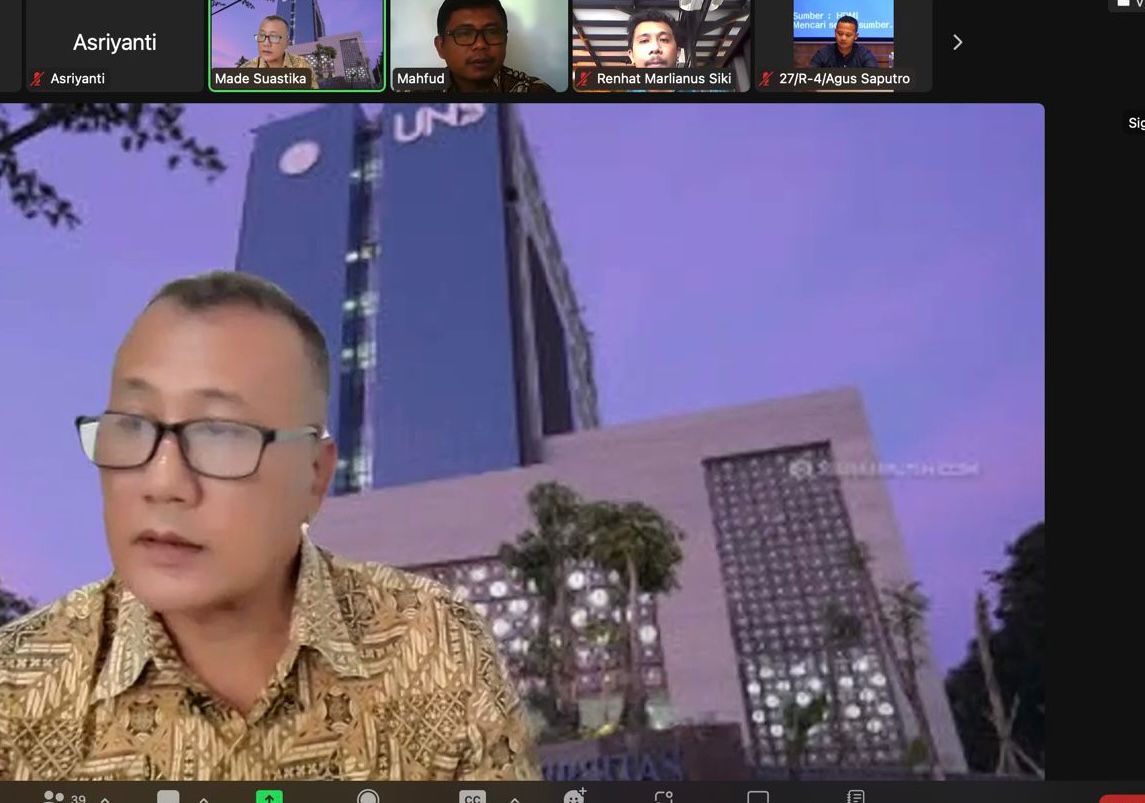
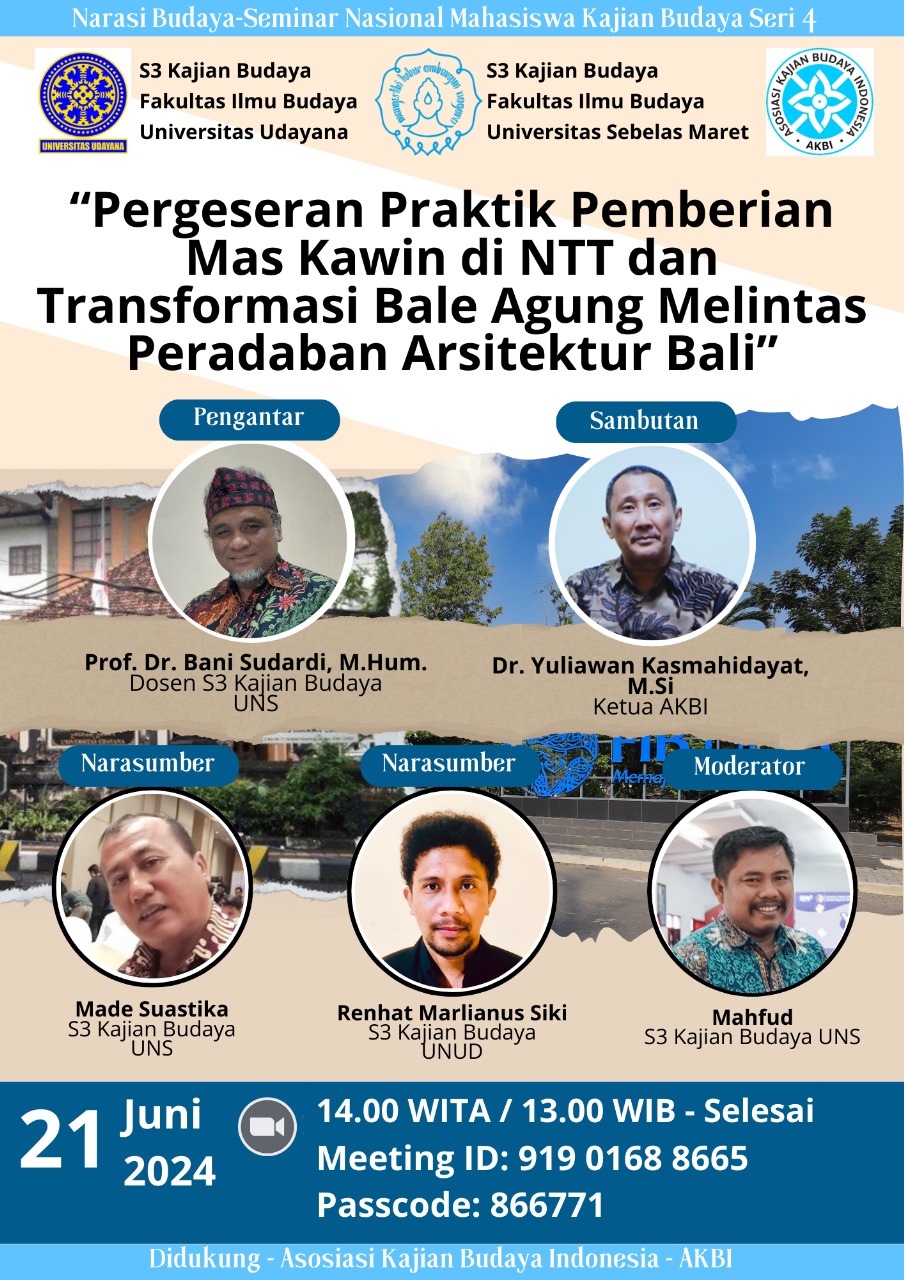


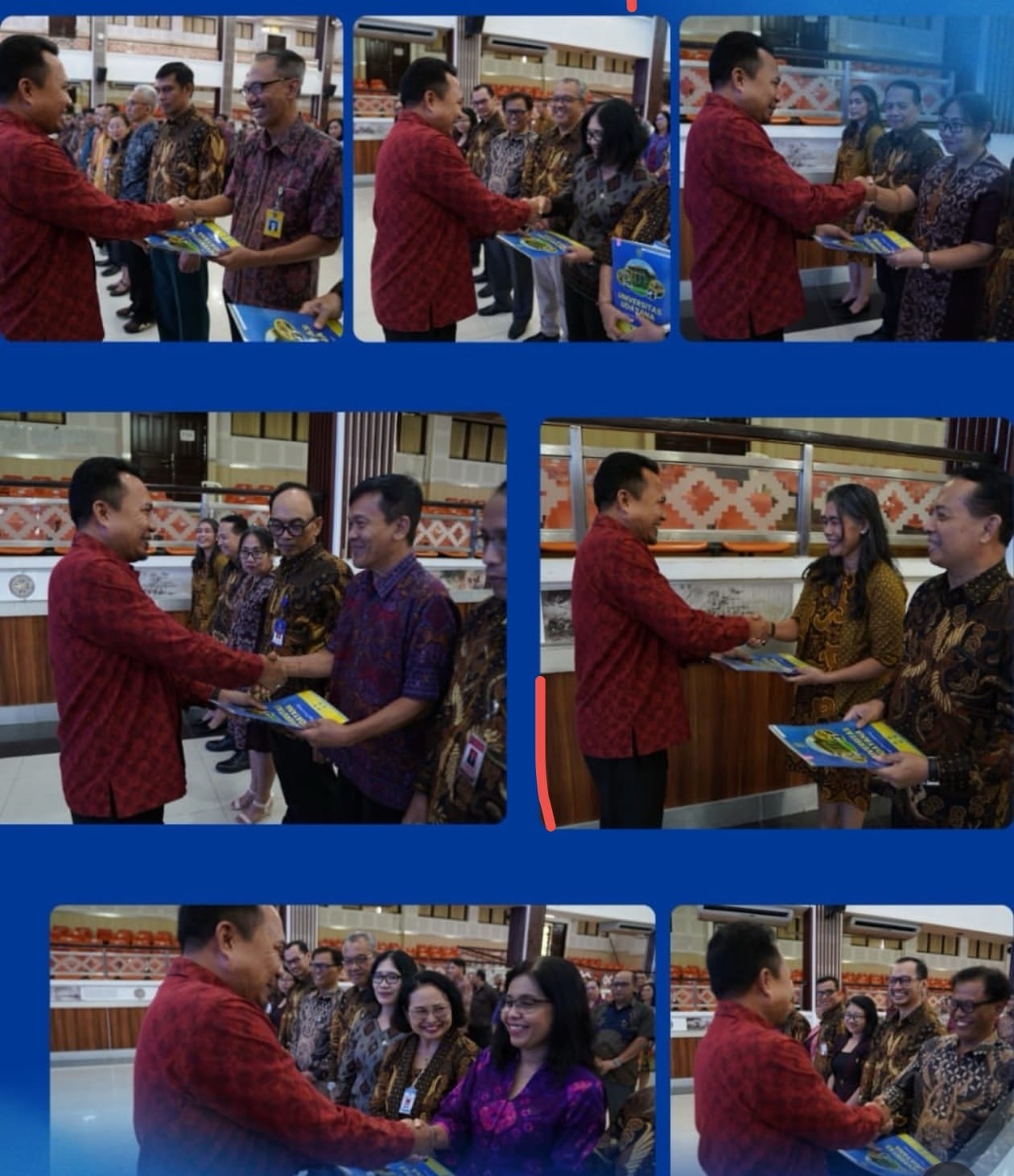
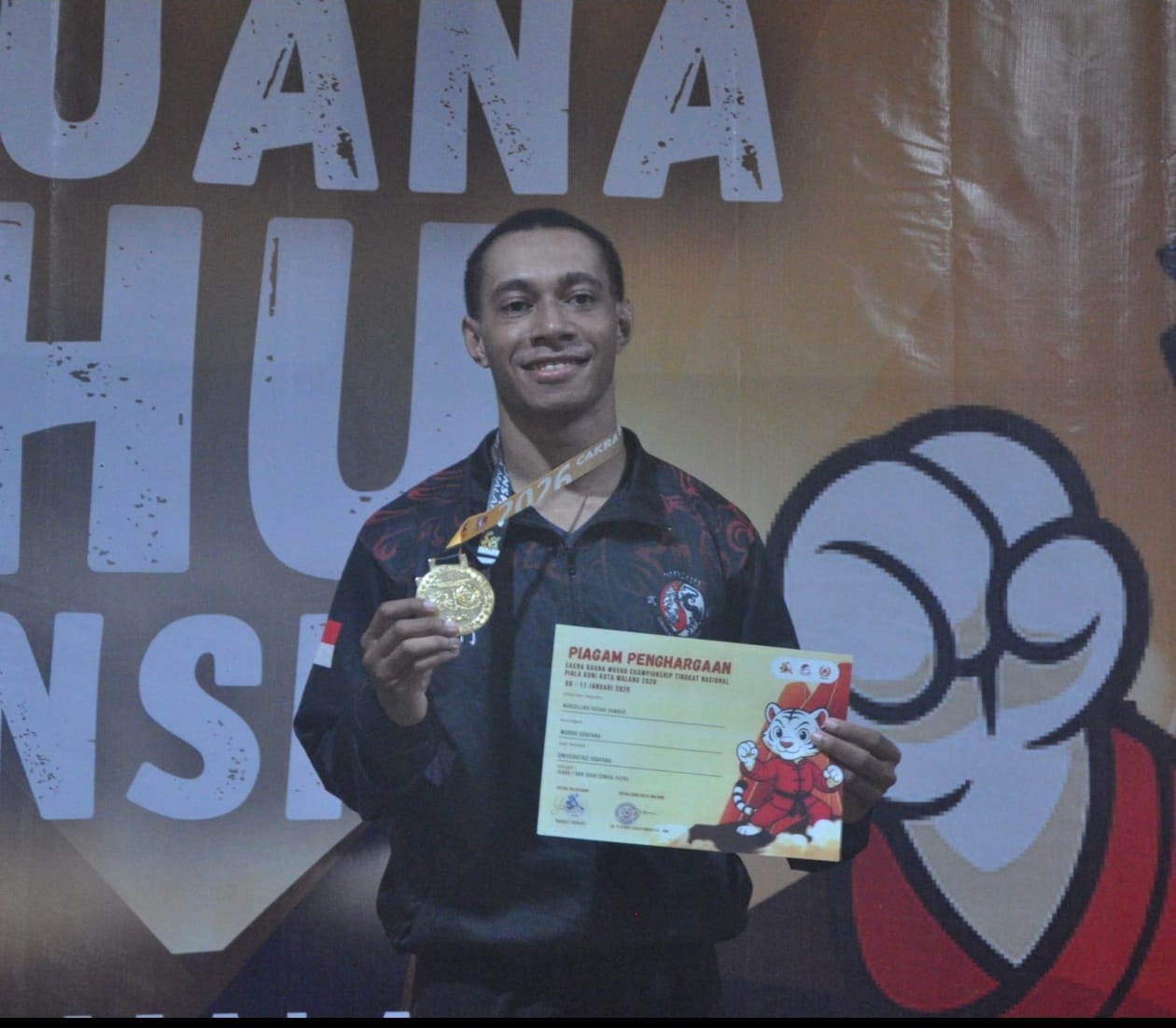
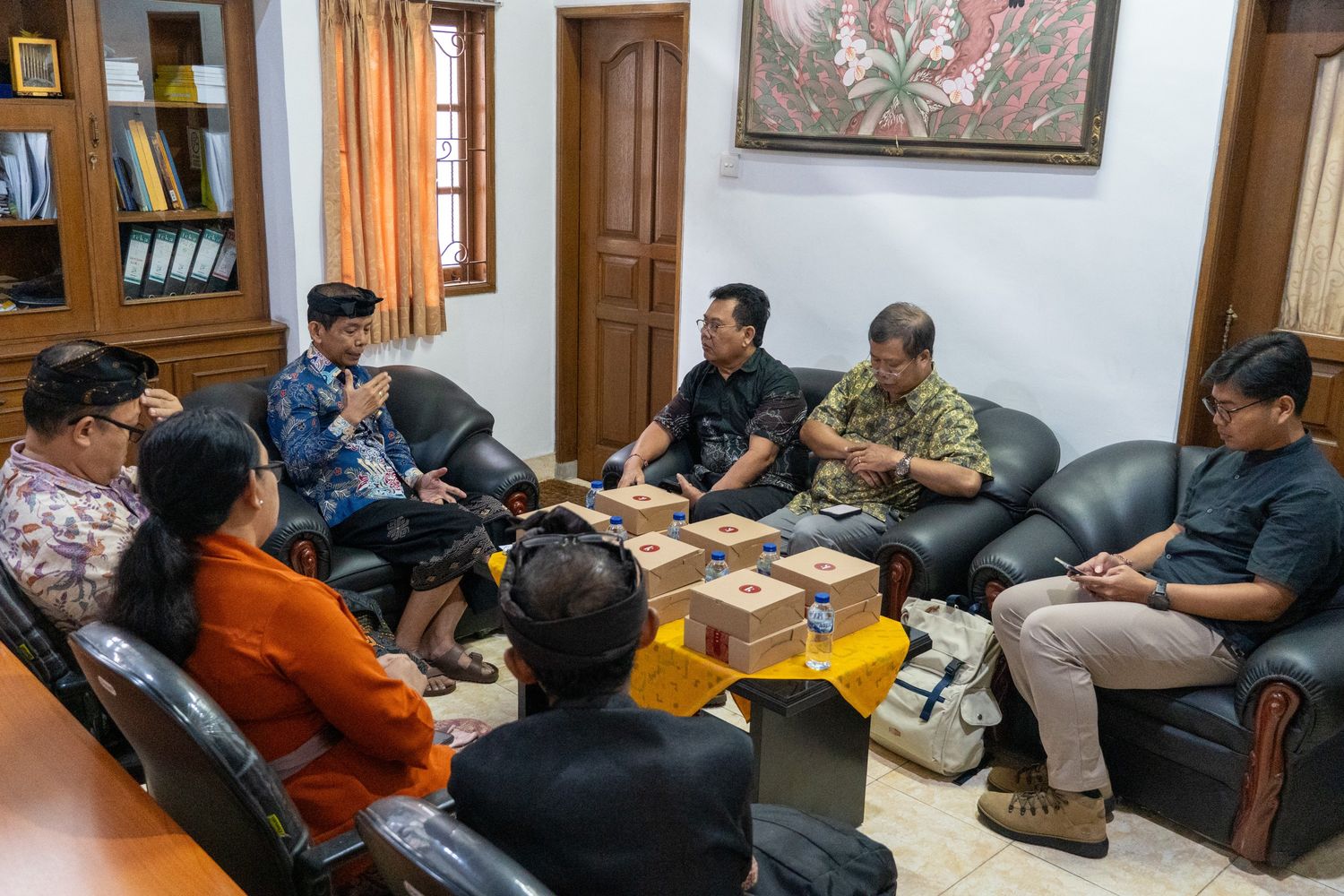
UDAYANA UNIVERSITY